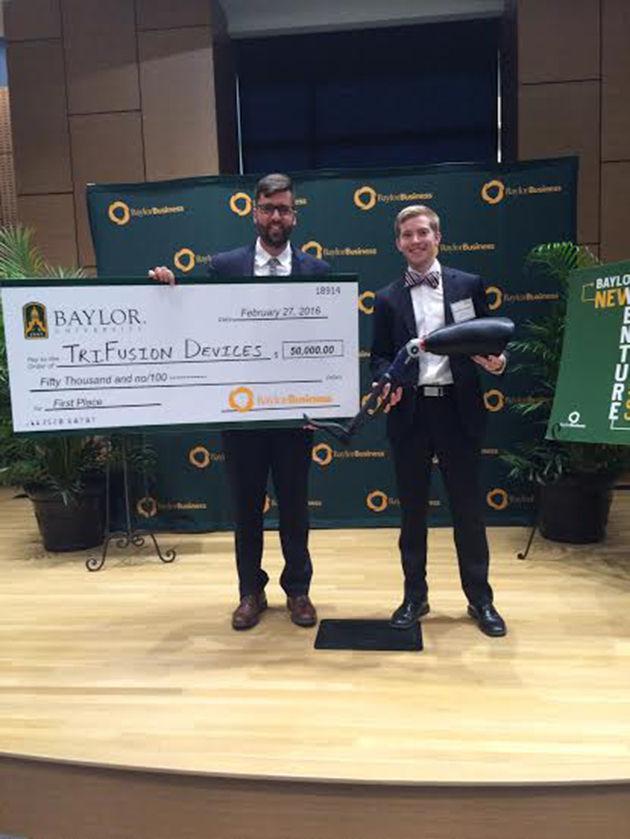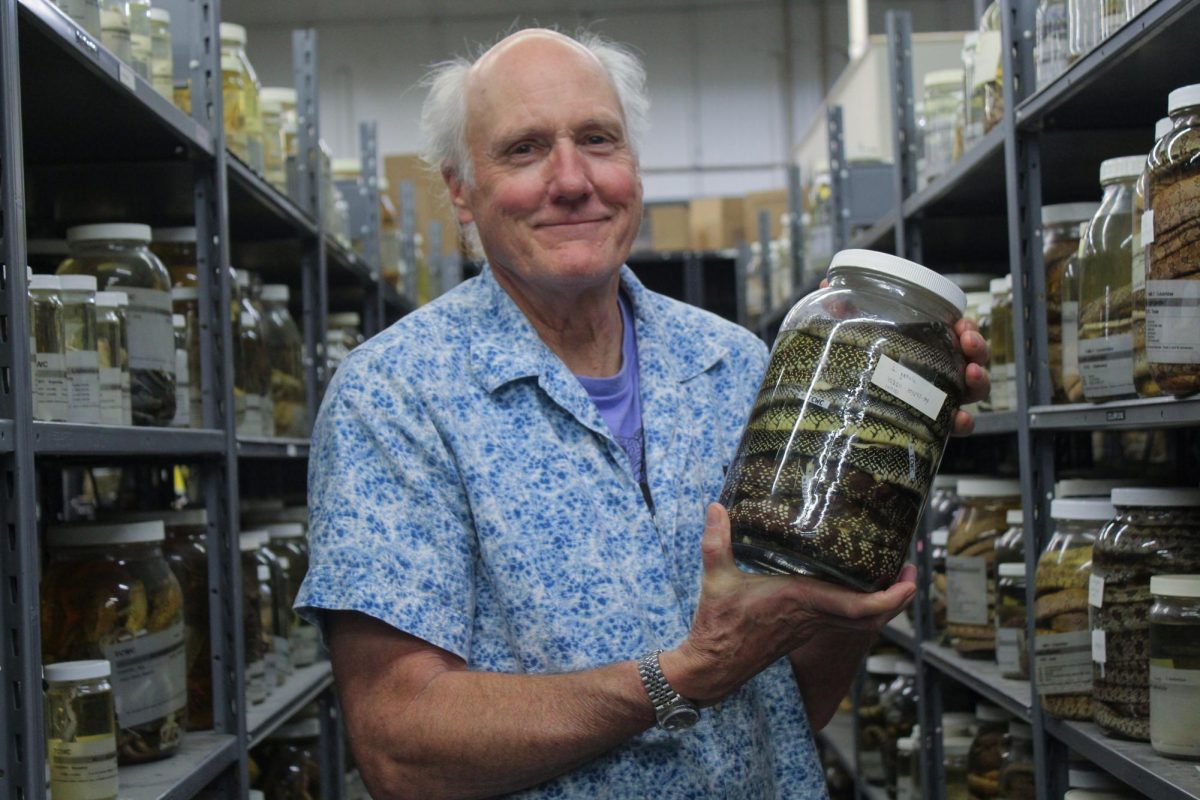An Aggie startup grounded in new 3-D printing technology is moving forward in a nationwide business competition hosted by Rice University.
TriFusion Devices is a company that uses new technology involving 3-D printing to create custom designed items like prosthetic limbs in a fast and cheap way.
“We are leveraging 3-D printing technology to print out complex devices that are not suited for mass manufacturing,” said Brandon Sweeney, A&M doctoral candidate and chief technology advisor at TriFusion Devices.
What makes TriFusion Devices different from other 3-D printer companies is its ability to strengthen the printouts using an electromagnetic microwave welding technique.
“3-D printing has historically been hindered by strength issues, so it is really seen as more of a prototyping service,” Sweeney said.
Sweeney said this welding method was the result of a colaboration with his adviser, chemical engineering professor Micah Green and his colleague, Blake Teipel.
“Brandon and I are colleagues in graduate school. We sat next to each other in multiple classes, we endured the beating together, worked really hard on many projects,” said Teipel, A&M doctoral candidate and co-founder and CEO of TriFusion Devices. “What we found is we shared a lot of common interests around nanotechnology, material science and people. How can we make those things work for people?”
Teipel and Sweeny will put their business model on display in Houston April 14-16 at the Rice Business Plan Competition, which is one of the world’s largest student startup competitions. The competition is one of many that the duo has competed in.
From its beginnings at Startup Aggieland, TriFusion Devices has benefited from the continued mentorship provided by Mays Business School Ideas Challenge and other programs at A&M.
“[TriFusion Devices] represents the entire ecosystem here,” said Richard Lester, director for the Center for New Ventures and Entrepreneurship. “It’s meant a lot for us to be able to see how they have been able to grow through our ecosystem here. I think it’s meant a lot for students to see how a really successful team can come together and the skill sets that they have to offer to the team.”
Sweeney said the success of TriFusion Devices is the result of hard work paired with guidance.
“A lot of times you hear success from a startup company and it sounds really disorganized and so many different things going on, and out of that success is born,” Sweeney said. “That’s a one-in-a-million story where somehow something good came out of all this chaos. We have seen that having a full fledged business plan, and being coached by great mentors can really lead to success more conclusively. We are very sensitive to that and grateful for the great advice and mentorship that we have gotten.”










